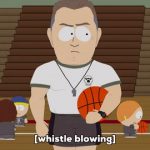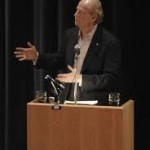[5-minute read]
It’s hoopin’ time again. *swallows nervously, drums his fingers on the desk*
I can’t just walk away, and I don’t want to, and I don’t think I necessarily ought to want to, but the apparently never-ending intra-cranial debate continues. And the scoreboard says WHAT? I don’t know why I should feel that I’m losing this contest, since I’m playing myself. But it’s a battle of divided wits, and there is always the fear of loss. Such is the mind of a man who wants Sudden Victory, in terms even his childhood self could understand. Confetti. Trophies. Hugs from my brothers, kisses from my wife. A microphone in my face; it wants to know how it feels for me to be Such A Champion. Guess what?
I still want to win.
So yes, that’s part of it. It’s probably not the most stone-headed story I tell myself about why I want to coach basketball, still and again and for who knows how long. There are other reasons, compulsions, purposes and afflictions. Some of them aren’t so savoury, while others leave a mainly good taste in my mouth. But in the pursuit of the recently proverbial (and ungrammatically concise) “Know Your Why”, let me start off being truthful, and hang the embarrassment:


